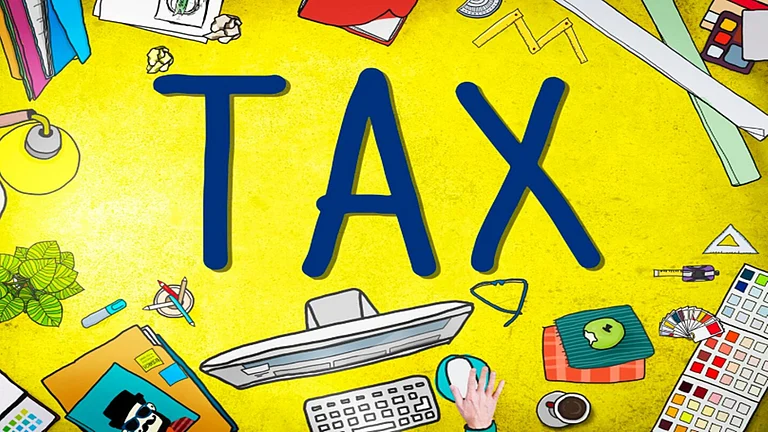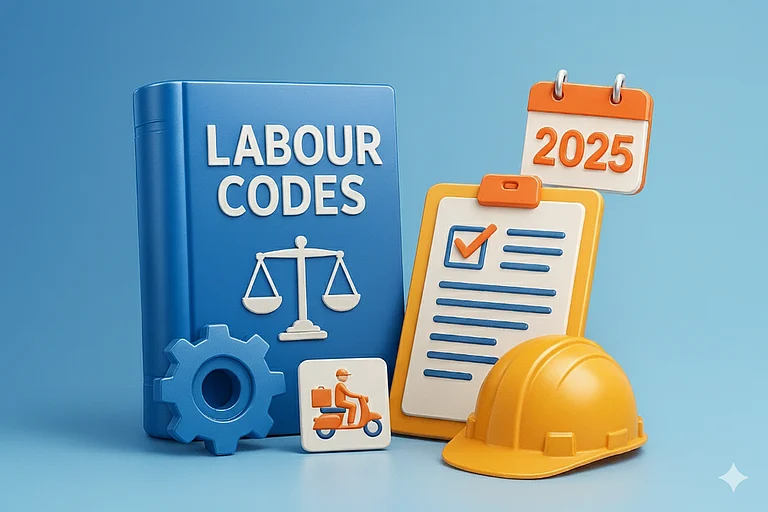New labour laws mandate 50 per cent of CTC as basic pay,
It increases PF and gratuity deductions.
Employees may see lower take-home pay, reviewing salary structure is crucial.
Use tax-efficient options like NPS, LTA, insurance, and reimbursements to optimise net income.
New Labour Laws May Cut Take-Home Pay: How Employees Can Protect Their Salary?
How India’s new wage rules will impact your salary, and smart ways to minimise the hit.
India’s new labour laws are bringing in a major shift for salaried professionals, especially around how wages are calculated. The Government announced the new labour codes earlier this month, on November 21, 2025. While the formalisation of benefits, gratuity, etc., for fixed-term, contractual and gig workers is a positive boost, white collar salaried workers will feel the pinch in the near term, say experts.
The new regulation requires that an employee's basic salary must constitute at least 50 per cent of their total CTC (cost to company). For salaried professionals, this adjustment will lead to higher contributions as both Provident Fund (PF) and gratuity calculations are based on an individual's basic pay.
With the revised definition of ‘wages,’ says Taru Shikha, founder and CEO at Avron (HiredNext Avron), a global recruitment consultancy firm. She explains that components like basic pay, bonuses, and allowances are being standardised, which means that contributions towards PF and gratuity will increase, a positive development for long-term financial security.
As the PF contributions are fixed at 12 per cent of the ‘basic’ part, there will be a bigger deduction from the employee’s salary due to this increase in the base.
However, she adds, many employees will experience a dip in their monthly take-home pay, and that naturally creates concern for those managing EMIs, childcare expenses, and rising living costs.
Before the new regulations, numerous companies encouraged employees by increasing their in-hand earnings by inflating allowances. "But the new regulations have ruled such practices out by raising the necessity for basic salary composition,” says Ashwini Kumar, Advocate & Founder of My Legal Expert.
The challenge is the immediate squeeze on monthly cash flow.
New Labour Laws: What can employees do to optimise their take-home pay without losing benefits?
According to industry experts, employees who want to take full advantage of the new labour regime to boost their take-home pay should be in constant communication with the Human Resources (HR) or payroll departments in their company. This will help them to get a clear picture of the new salary structure.
Employees, says Ashwini Kumar, can also look into different ways of getting tax deductions and contributions to the National Pension System (NPS) to gain additional tax benefits.
“Doing regular financial planning and taking advantage of company-subsidised benefits such as meal vouchers or flexible benefits can help to increase the net income without giving up long-term gains,” Kumar adds.
Employees can take several practical steps to optimise their take-home pay without sacrificing the benefits. For instance, they can review their salary structure with the HR to understand which components are flexible. “Many organisations allow adjustments in reimbursements or performance-linked pay. Use tax-efficient options like Leave Travel Allowance (LTA), National Pension System (NPS), health insurance, and professional development budgets to rework your salary structure,” says Taru Shikha.
Given the changes, it becomes necessary for the employers to upgrade policies, technology systems, and rejig salary structures in a way that the new laws are taken care of while also ensuring harmony for employees.
If the employee's take-home pay dips, the companies and brand, says Vibhore Goyal, founder of Onebanc, those who sell to this segment will also feel the pain. He believes there can be an estimated demand hit worth Rs 1.20 lakh crore.
Thus, the smartest response to these new laws is simple: plan better, optimise smarter, and keep upgrading your skills to future-proof your income.

